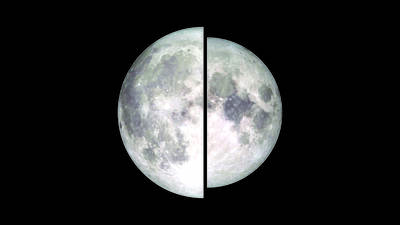對話 Dialogue
小實:馬克,你今年幾歲?
Xiaoshi: Mǎkè, nǐ jīnnián jǐ suì?

馬克:我今年三十歲,你呢?
Make: Wǒ jīnnián sānshí suì, nǐ ne?
小實:我今年二十五歲。
Xiaoshi: Wǒ jīnnián èrshíwǔ suì.
馬克:你有兄弟姐妹嗎?
Make: Nǐ yǒu xiōngdì jiěmèi ma?
小實:我沒有,你呢?
Xiaoshi: Wǒ méiyǒu, nǐ ne?
馬克:我有一個哥哥。
Make: Wǒ yǒu yíge gēge.
小實:你的哥哥今年幾歲?
Xiaoshi: Nǐ de gēge jīnnián jǐ suì?
馬克:我的哥哥今年三十二歲。
Make: Wǒ de gēge jīnnián sānshíèr suì.
翻譯 Translation
Xiaoshi: Mark, how old are you?
Mark: I am thirty years old. How about you?
Xiaoshi: I am twenty-five years old.
Mark: Do you have any siblings?
Xiaoshi: No, I don’t. What about you?
Mark: I have an older brother.
Xiaoshi: How old is your brother?
Mark: My brother is thirty-two years old.
單字片語 Vocabulary
1. 今年 (jīnnián) this year
2. 幾 (jǐ) how many
3. 歲 (suì) year old, age
4. 有 (yǒu) have
5. 沒有 (méiyǒu) not have
6. 兄弟姐妹 (xiōngdì jiěmèi) siblings, brothers and sisters
7. 哥哥 (gēge) elder brother
教材音檔 Audio Files
實踐大學華語中心提供
By Shih Chien University Chinese Language Center: https://chineseusc.com/

Skating is a popular recreational and competitive activity that involves sliding over surfaces using specially designed footwear. Its origins date back over 1,000 years to Northern Europe, where people first strapped animal bones to their feet to move across frozen lakes and rivers. In the 17th century, the Dutch transformed skating into a leisure activity. They also replaced bone blades with metal, leading to the creation of modern ice skates. Today, ice skating is enjoyed as a global sport and an exciting pastime by people of all ages. Figure skating is one of the best-known and most graceful forms of skating.

Have you ever gazed at the night sky and felt as though the Moon loomed larger than usual? Your eyes were not deceiving you. The Moon’s apparent size can __1__ subtly depending on where it is in its orbit. On certain occasions, it reaches its fullest phase while at its closest point to Earth. When these two events __2__, scientists and the public refer to the spectacle as a “supermoon.” The Moon does not orbit our planet in a perfect circle. Instead, it travels along a more oval-shaped __3__, completing one full orbit every 27 days. Consequently, there are times when

A: South Korea’s Golden Disc Awards ceremony is taking place at the Taipei Dome on Saturday. Eighteen acts are taking to the stage, including Blackpink’s Jennie. B: The hottest boy group CORTIS is also performing. I can’t wait to see James, the Taiwanese member of the band, perform. A: Who else are playing at the K-pop show? B: This year’s lineup is stacked, including: Allday Project, ARrC, Ateez, Boynextdoor, Close Your Eyes, Enhypen, IVE, Izna, KiiiKiii, Le Sserafim, Monsta X, NCT Wish, Stray Kids, TWS, Zerobaseone and Zozazz. A: SKZ, Enhypen and Ateez dominated Billboard’s 2025 Year-End World

A: Aside from K-pop, what were the English chart-toppers? B: Billboard’s top three singles for 2025 were “Die with a Smile” by Lady Gaga/Bruno Mars, “Luther” by Kendrick Lamar/SZA and “A Bar Song (Tipsy)” by Shaboozey. Plus, pop diva Mariah Carey’s 1994 megahit “All I Want for Christmas Is You” won its 20th and 21st weeks at No. 1, becoming the longest-running No. 1 song in history, A: How about in Taiwan? The news says nine of the 10 most-streamed songs on Spotify Taiwan were Korean. B: Yup, and the top three were: “Winter Ahead” by BTS’ V and Park